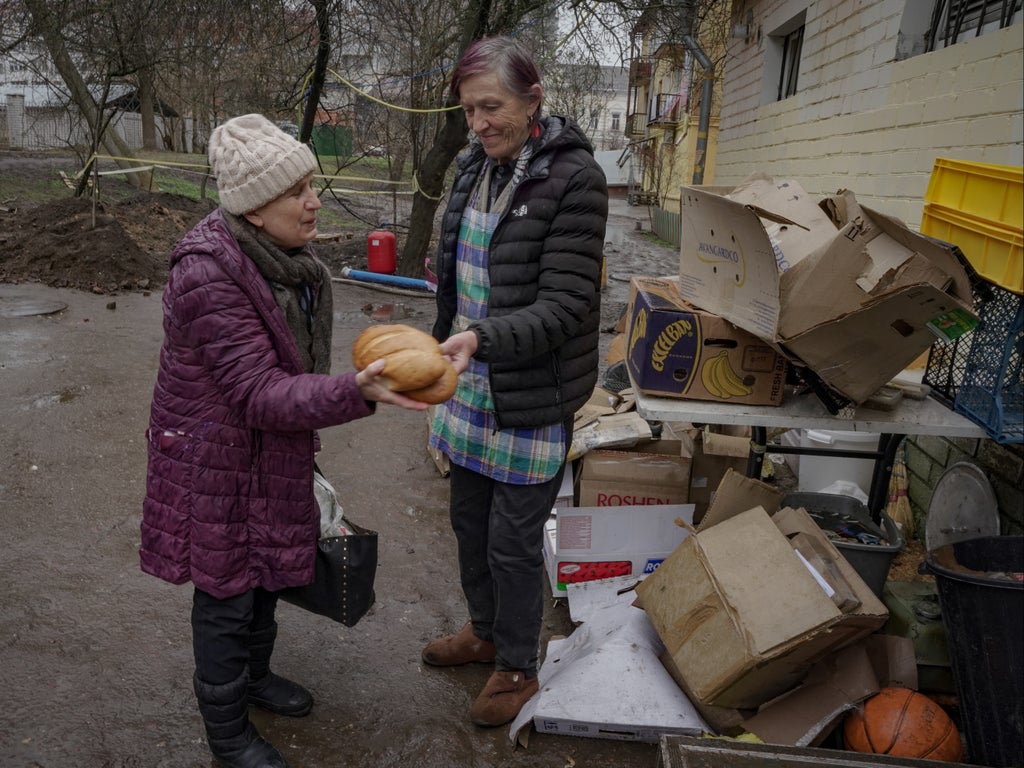
All the bridges to Chernihiv had been blown up in heavy Russian bombing and the city was under a crippling siege but Tanya still managed to sneak out on a rowing boat through a secret route and head to Kyiv.
The 54-year-old only narrowly escaped death.
As she was scrambling onto the opposite bank of the Desna river, which cuts through the city, shelling struck nearby. She only avoided being shredded to pieces thanks to a nearby trench.
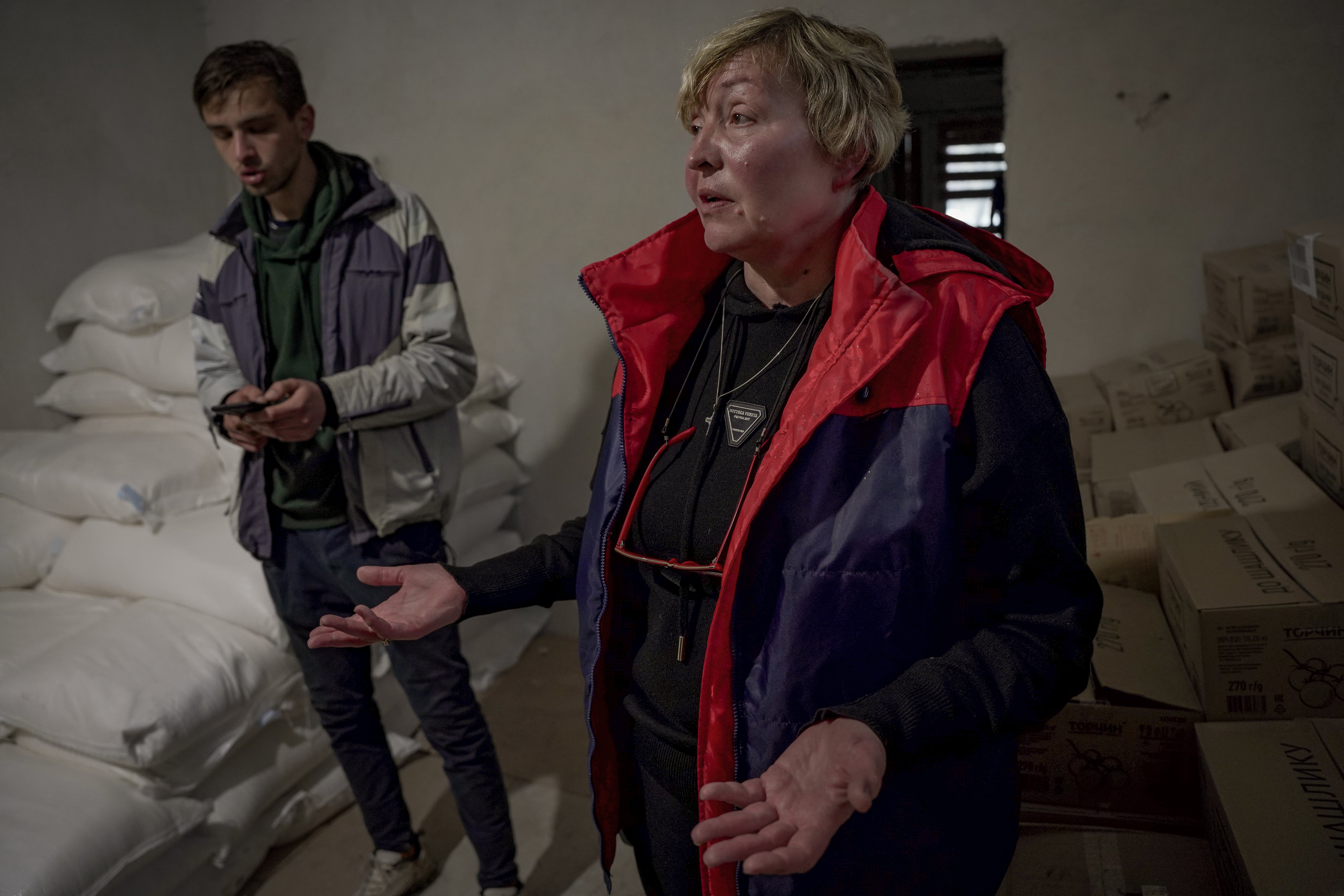
The aim of the dangerous journey was to help evacuate a group of elderly people but also to reach the capital to register and start fundraising for her new charity, which aimed to feed the bombarded city. To do this, she crept across the river, crossed the front line and weathered shelling and shooting – a daring undertaking she went through all over again on the way back from Kyiv.
Her task was urgent. People in Chernihiv were not only in danger of dying from a fierce air assault, but hunger and thirst. Tanya, an entrepreneur in her pre-war life, together with a pair of restaurant business owners and the head of a local charity in the city, worked out how to pool and maximise supplies within the city, and then later, how to sneak some in.
At one point they even dug a well to service thousands of people, with an industrial drill sourced from inside the city, despite everything being bombed and there being no electricity. They located and repurposed generators – also left behind – using their own car batteries for power.
“I was warned it was very dangerous but I took my chance,” says Tanya about her odyssey to Kyiv. She describes how the bodies of civilians who had been killed while fleeing littered the waters of the river.
“When I got to the other bank, we were heavily shelled. I was shelled on the way back too. But it was essential to get this charity up and running. People’s lives were at stake.”
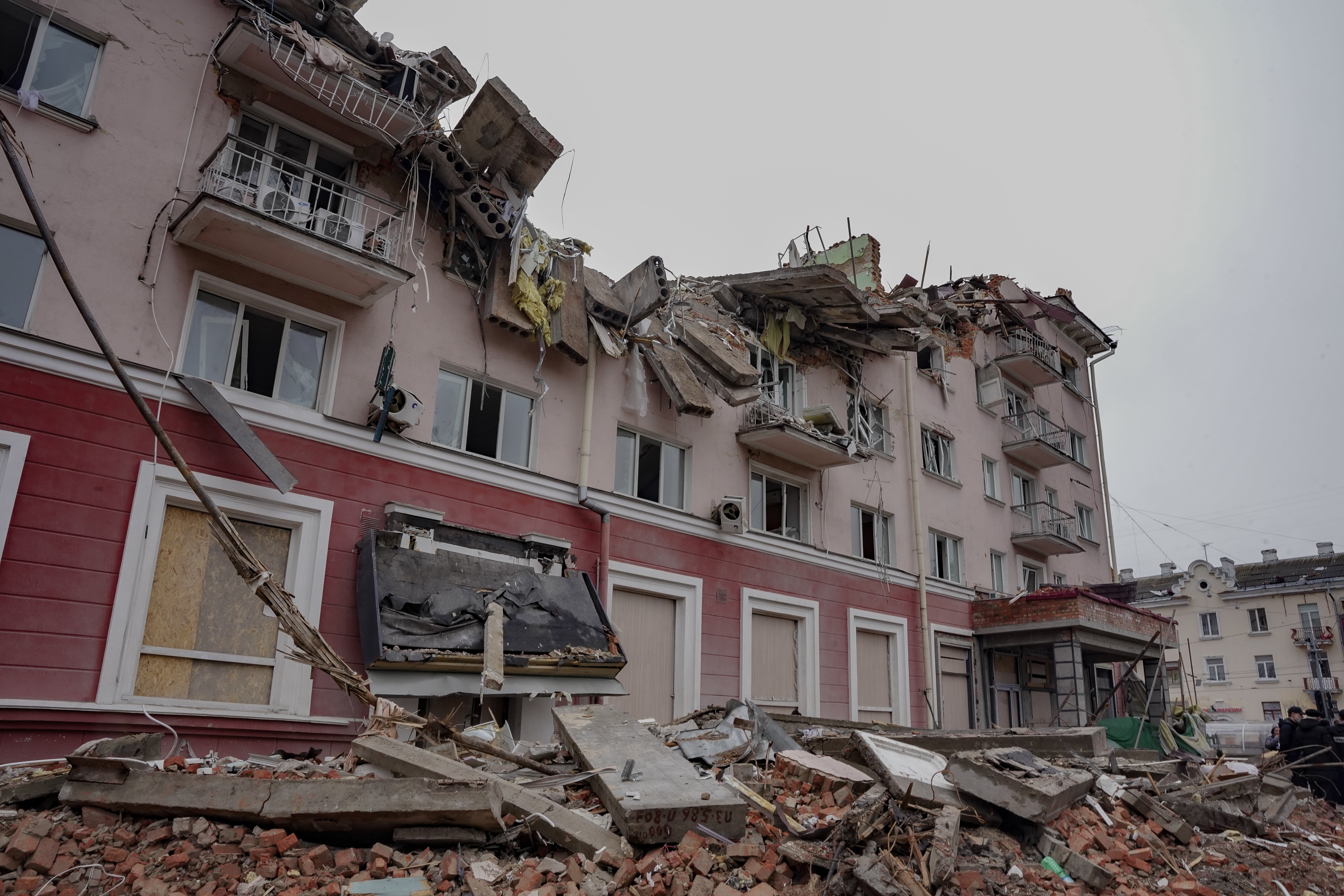
Located on the banks of the Desna River and just 140km north of Kyiv, Chernihiv quickly became a prime target of Vladimir Putin’s invasion of Ukraine in late February.
The city is located right in the middle of the road the Russian troops invading from Belarus needed to take in their ultimately unsuccessful sprint to the capital.
By 24 March, Russian forces had almost completely encircled Chernihiv, strangling it with a siege that only fully lifted last week.
Just over 140,000 people – half of the pre-war population – had stayed. They were trapped with no running water, food, electricity or heating. Residents tell The Independent they were under relentless bombing. They say schools, hospitals, houses and, crucially, bridges were destroyed.
The lack of bridges made evacuation near impossible, and it cut off the city from food, medical and water supply lines.
And so, in the middle of this hell, an extraordinarily resourceful group of now 300 volunteers risked their lives every day to make and then deliver sandwiches, food and medical parcels to thousands of citizens and soldiers in the war-battered city.
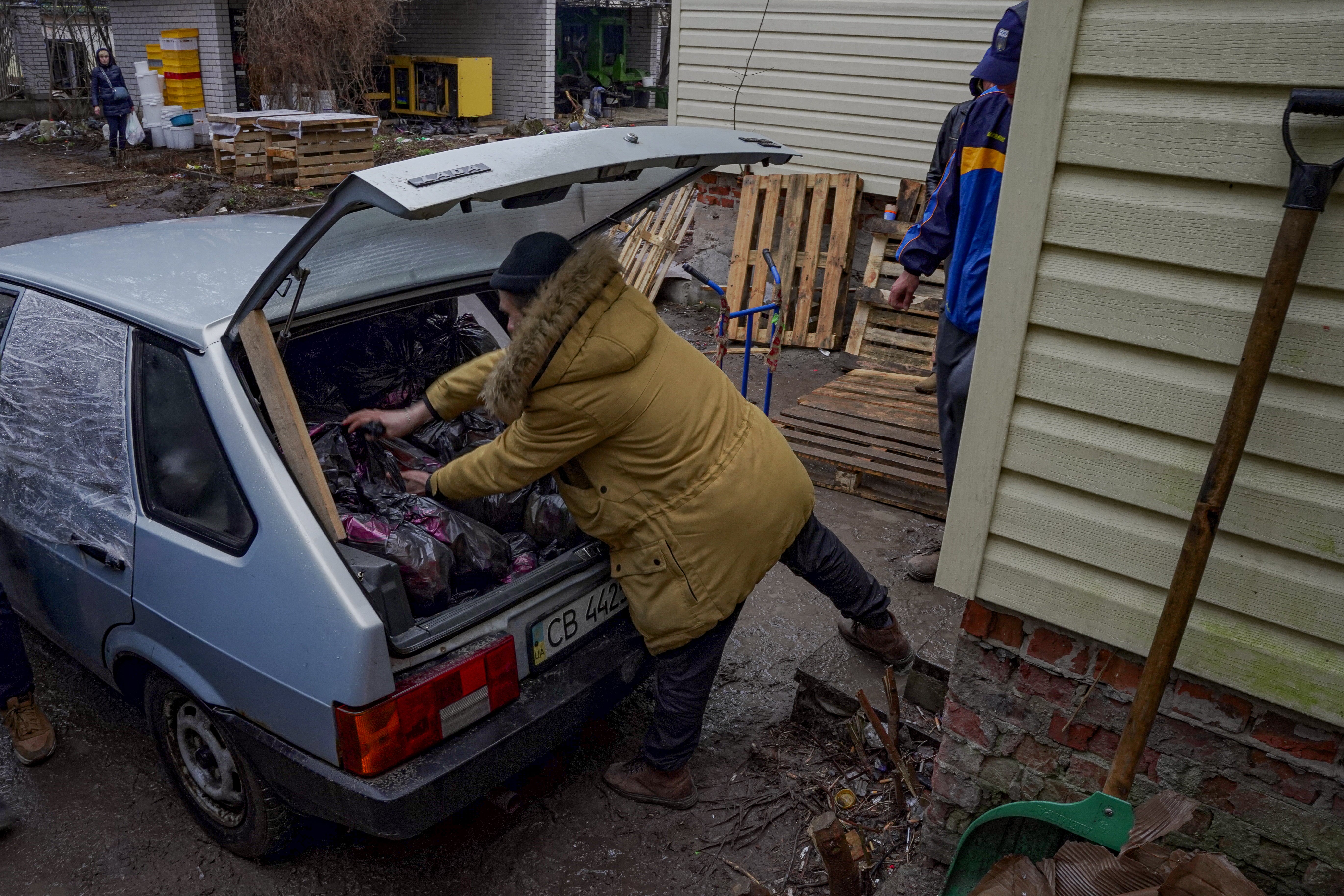
It was highly dangerous work. During the weeks of bombardment, one member of their team, Sasha, was injured by shelling while delivering food and is now on crutches. Four members of an affiliated organisation were killed when Russian forces fired on their van as they were trying to reach people in a southeast suburb of the city.
But they kept going. And today the main hub – located by a pizza restaurant which is part of a chain run by Igor and his partner Oleg – still feeds thousands of people today, including now making 3,000 pizzas a day for Ukraine’s soldiers.
During the fighting, Tanya, Igor, Oleg, and a local resident called Victoria – who already ran her own charity – founded “Sparkle of Goodness”.
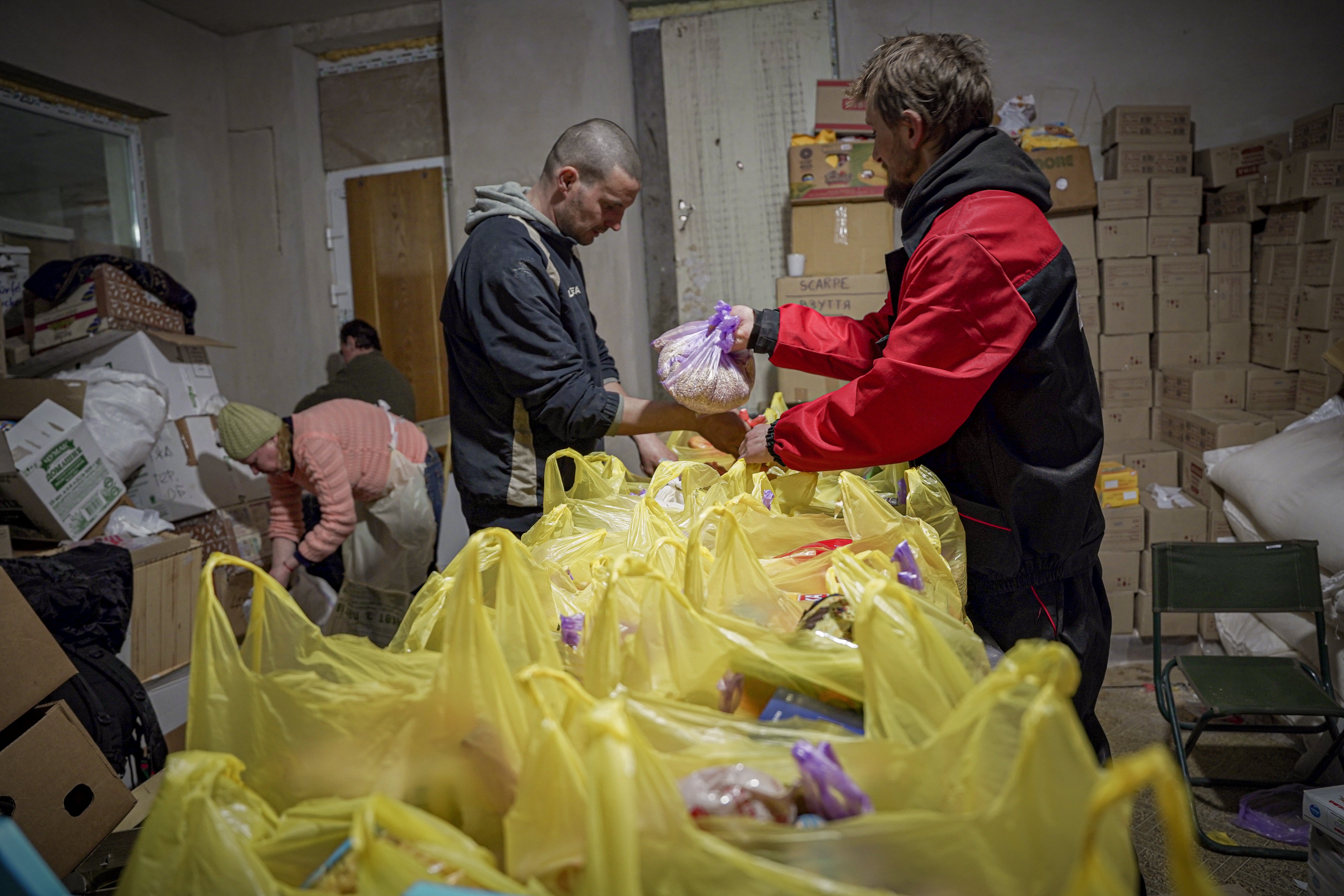
They gathered donations from inside Chernihiv, outside the city and abroad.
When Russian forces tightened their stranglehold around the city, they coordinated with restaurants and shops, to pool as much of the supplies left behind as possible.
They got permission from the city administration to open warehouses abandoned in the war to locate key supplies including flour.
With the agreement of local business owners and community leaders they sourced and then fixed industrial generators left behind – powering them with batteries from their own cars.
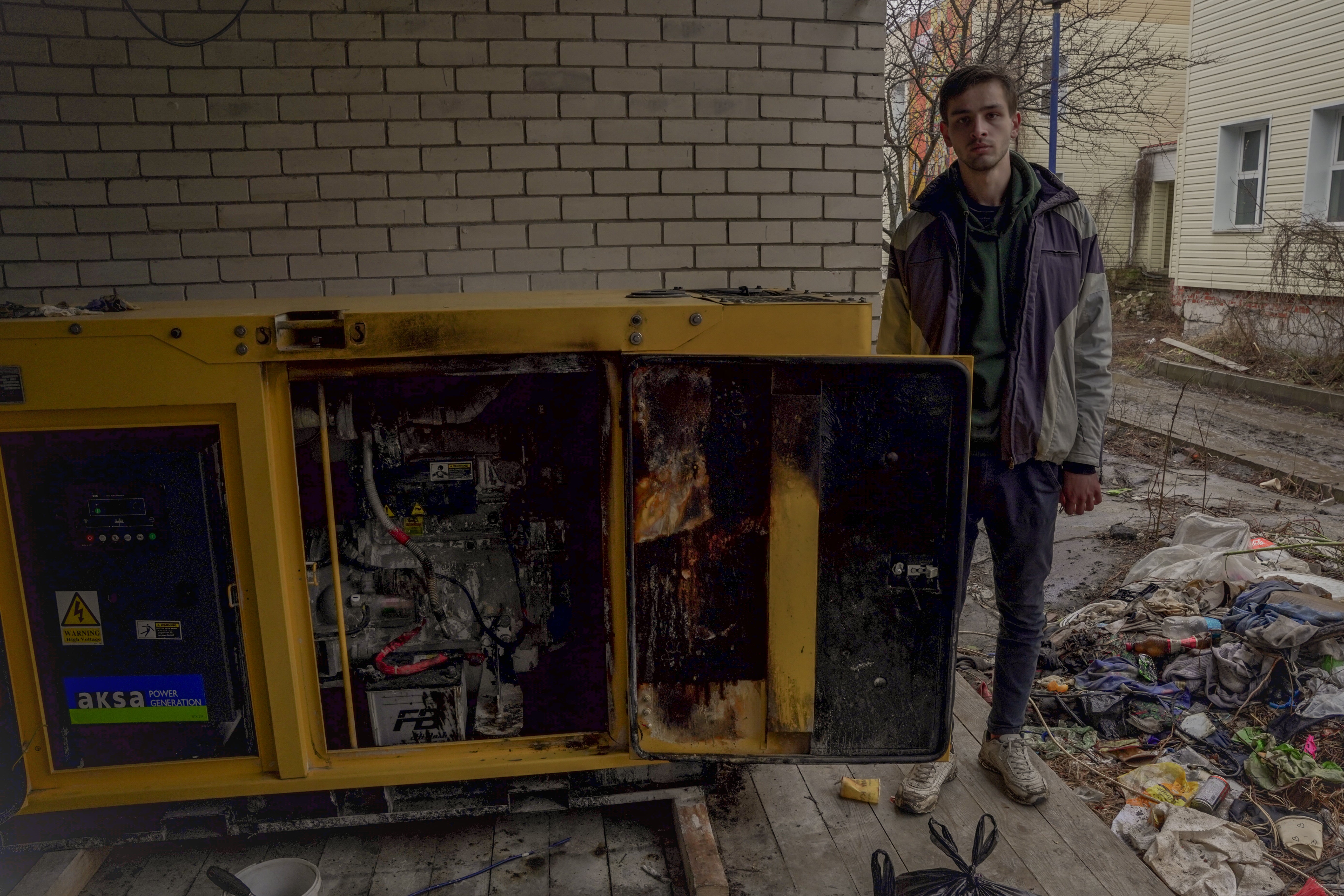
On the side, they also managed to evacuate 2,000 of the city’s most vulnerable people through their routes.
“At the beginning we didn’t have electricity, so we just used gas, and prepared food in the dark using supplies we had left from our restaurants,” Igor says, as he coordinates a fresh batch of food parcels to a village recently liberated from Russian forces on the outskirts of Chernihiv.
The 25-year-old left school at the age of 17 to set up his chain of restaurants which were booming pre-invasion. He decided to join the war effort when the first shell landed on day one of Putin’s invasion.
“We managed to save three generators in the city and tow them under bombing to our site,” Igor says.
“With permissions from the local administration we broke open the warehouses in the city to get supplies so we could feed everyone when it was besieged.”
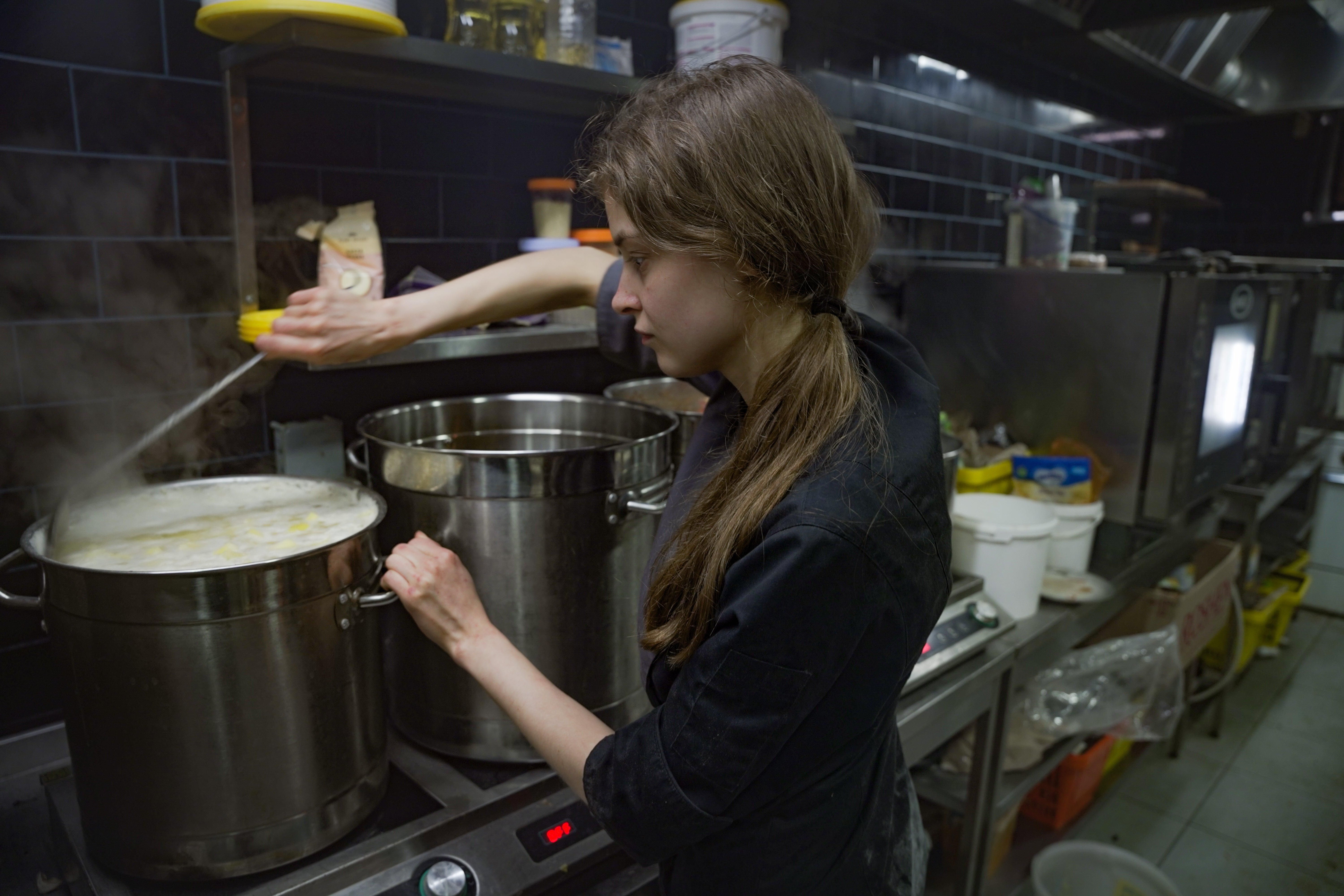
Victoria says during the height of the fighting they were making 5,000 sandwiches a day and thousands of other food parcels. They delivered the food to people in their own cars – even when shelling blew off the door of one of them.
In early March, Victoria used her donor contacts to source €3,000 (£2,500) to buy an industrial drill in the city, which was powered by the generators. The well they somehow managed to build still works and supplies water to those people whose buildings remain cut off.
“When it got bad we had to find secret ways, smaller roads, and the river crossing to try to get supplies in,” Victoria explains.
“No matter what happened, all the way through the shelling we fed people every day of the week,” she adds.
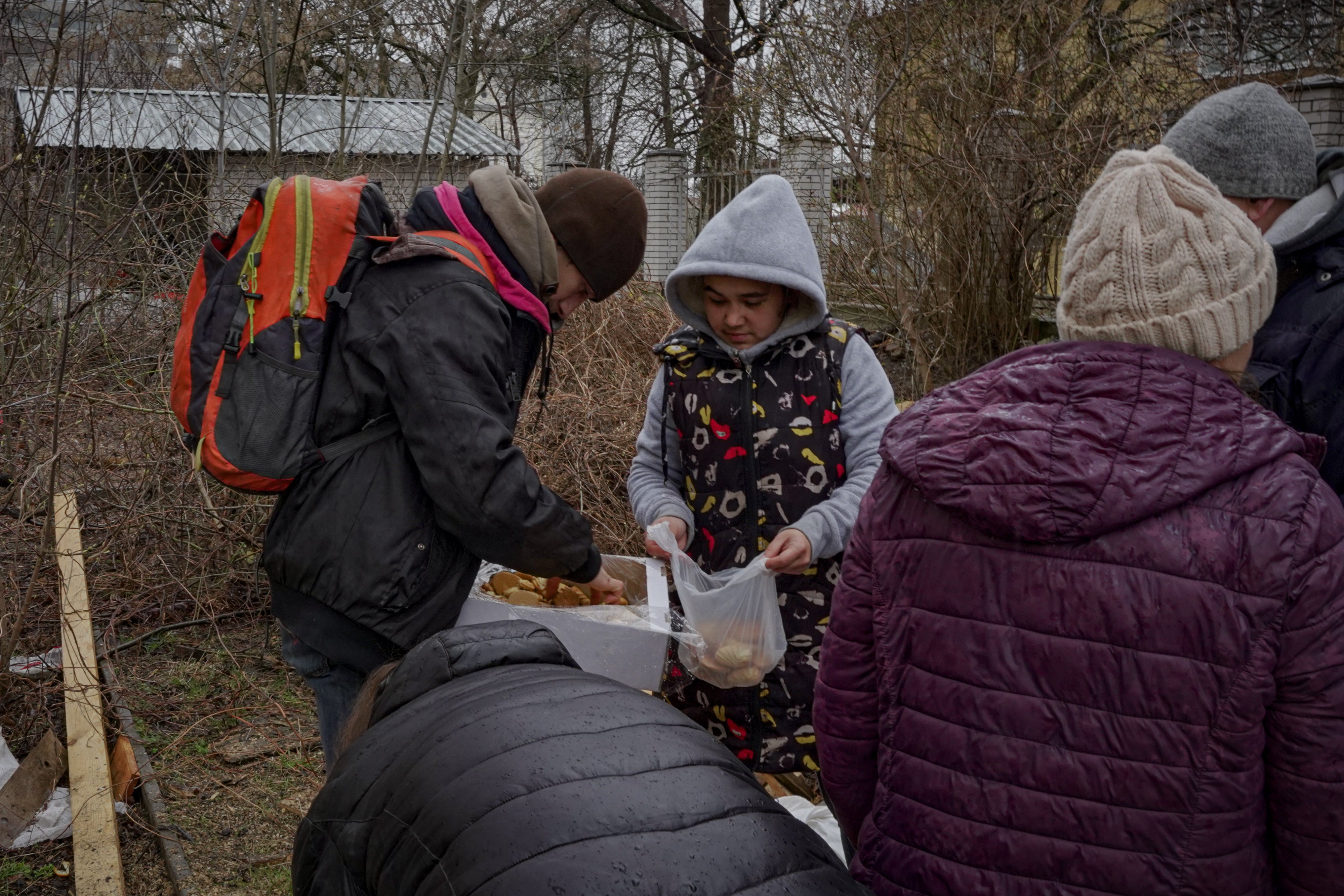
They were a lifeline for many people. Maria, 69, was cycling to the hub to get some bread. During the siege, the charity kept her and her son, an ambulance driver, from dying of hunger and thirst.
“I was hiding in a bomb shelter constantly as there was bombing every day, every hour, the dust would fall on my head,” she says, visibly shaken.
“But no matter what, the volunteers came with food and water, or whatever medicines we needed,” she adds.
“If it wasn’t for them, I don’t think I would be here.”
However, there were areas that even the volunteers couldn’t access directly, especially when four members of an affiliated organisation working with their charity were shot dead trying to deliver food.
Just 500 metres from Russian positions – in an impoverished neighbourhood northeast of the city – Andrei, 40, and Anya, 30, say they were reduced to tapping the sap from birch trees in a communal yard in front of their rundown apartment block, when food and water ran out.
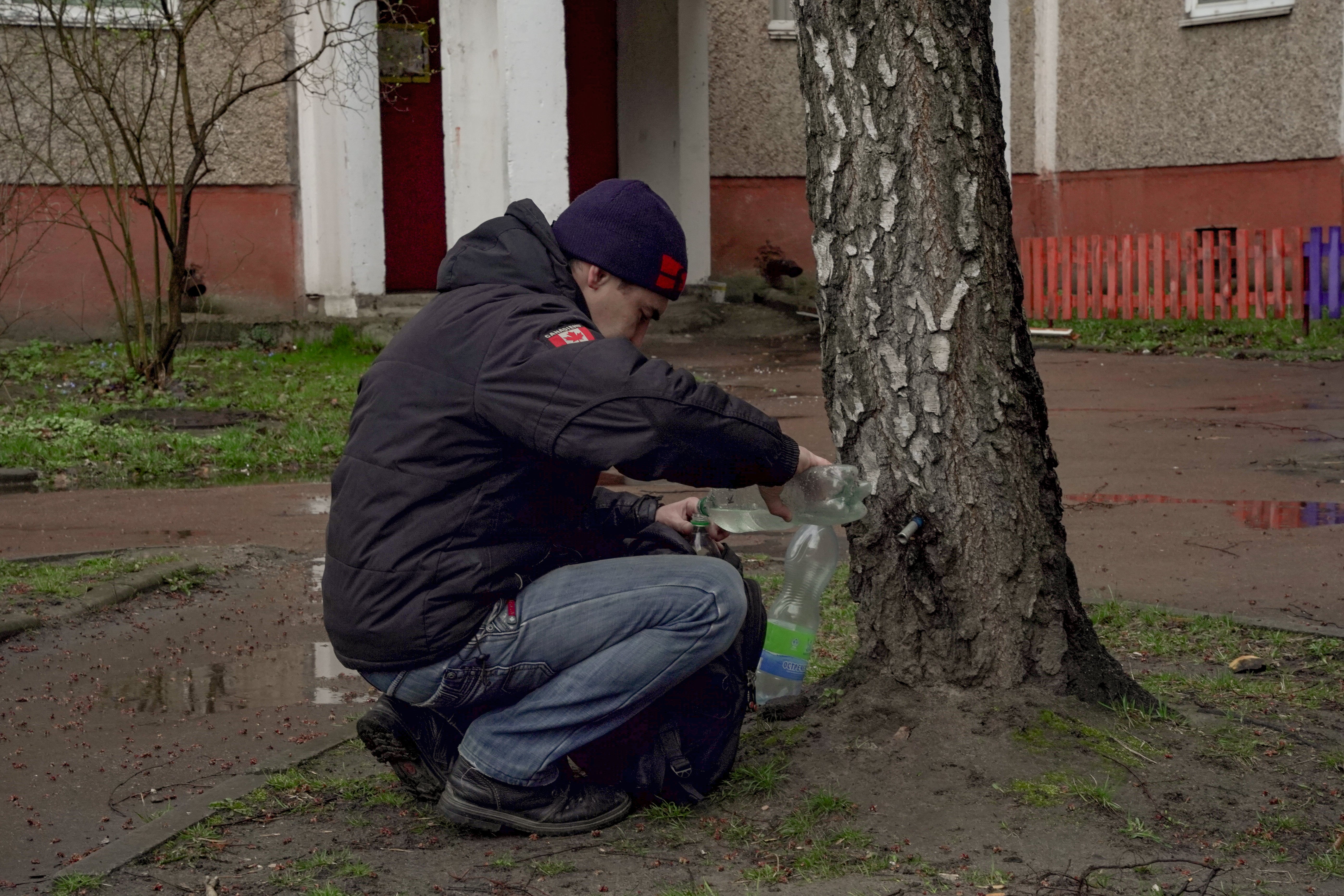
Birch sap is a popular drink in Ukraine but it is naturally low in calories and sugar and is therefore no meal replacement.
“We lived underground for weeks and would starve for days and be dying of thirst,” says Andrei, an electrician, showing us the basement barely a half a storey below ground where 50 people took shelter.
“The longest period we didn’t have a proper meal was two weeks. Even water was a luxury – we just lay here and tried not to think about it as everything was shelled above us.”
They begged nearby larger residential houses with gardens to give them any vegetables growing there and collected rainwater from the drains on the roof. They were forced to build bucket toilets in the playground and cooked in the same area on a makeshift barbecue, in between the shelling.
“We were afraid to go outside to the toilet because we could get killed,” Anya adds, explaining that people were shot who strayed too close to Russian positions.
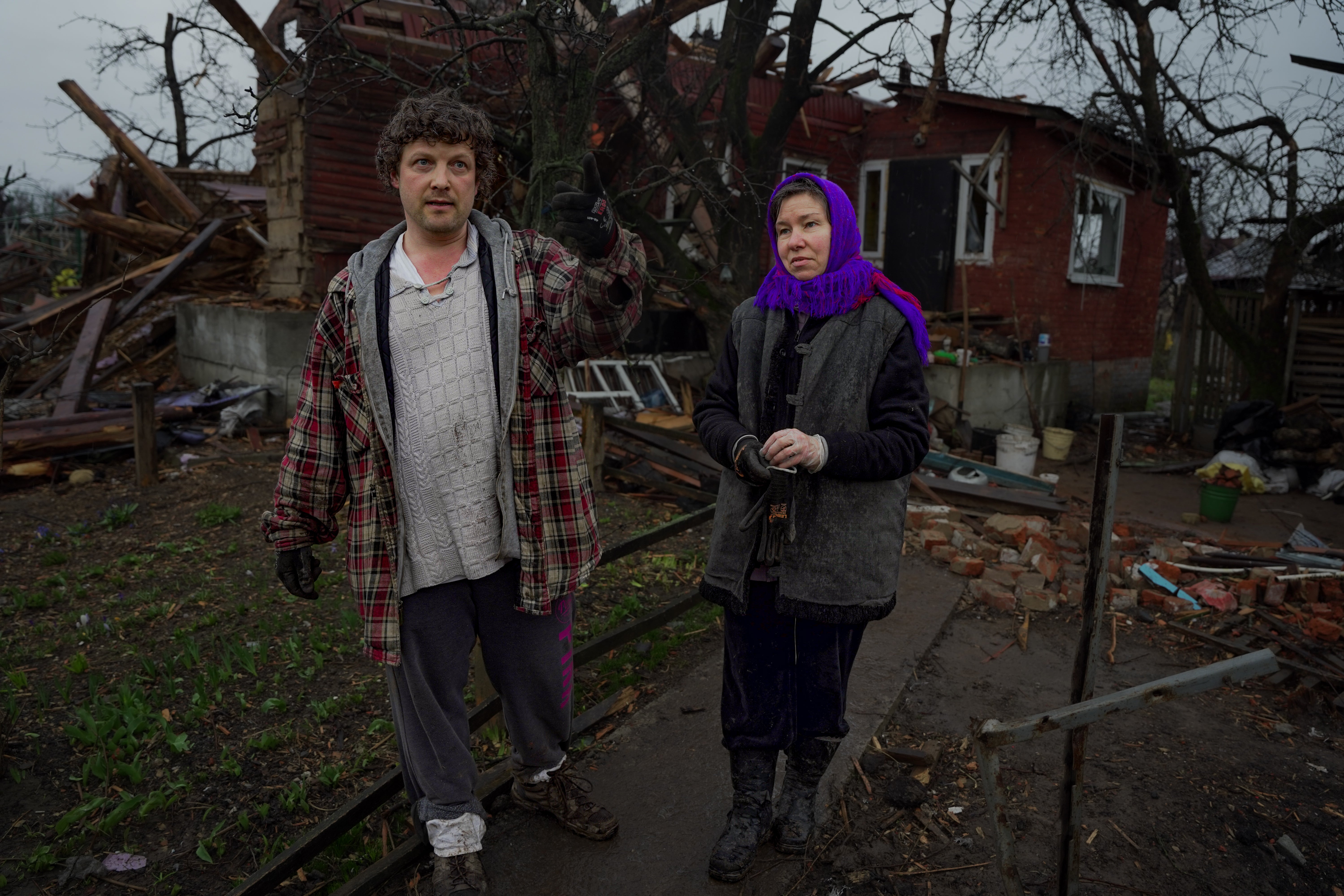
In another northeastern area of the city, Novoselivka, which volunteers also tried unsuccessfully to reach, Svetlana, 50, and her husband Andrei, 44, pick through the shattered remains of their home which has at least a dozen different holes from shelling in it.
There is nothing left to salvage.
“We collected rainwater and when that didn’t work, we would run through shelling to the nearest hospital that had a well,” Svetlana says.
Back at the hub, volunteers are busy preparing food, medical and hygiene parcels for people such as Svetlana and Andrei who are now accessible after the Russians withdrew from the region.
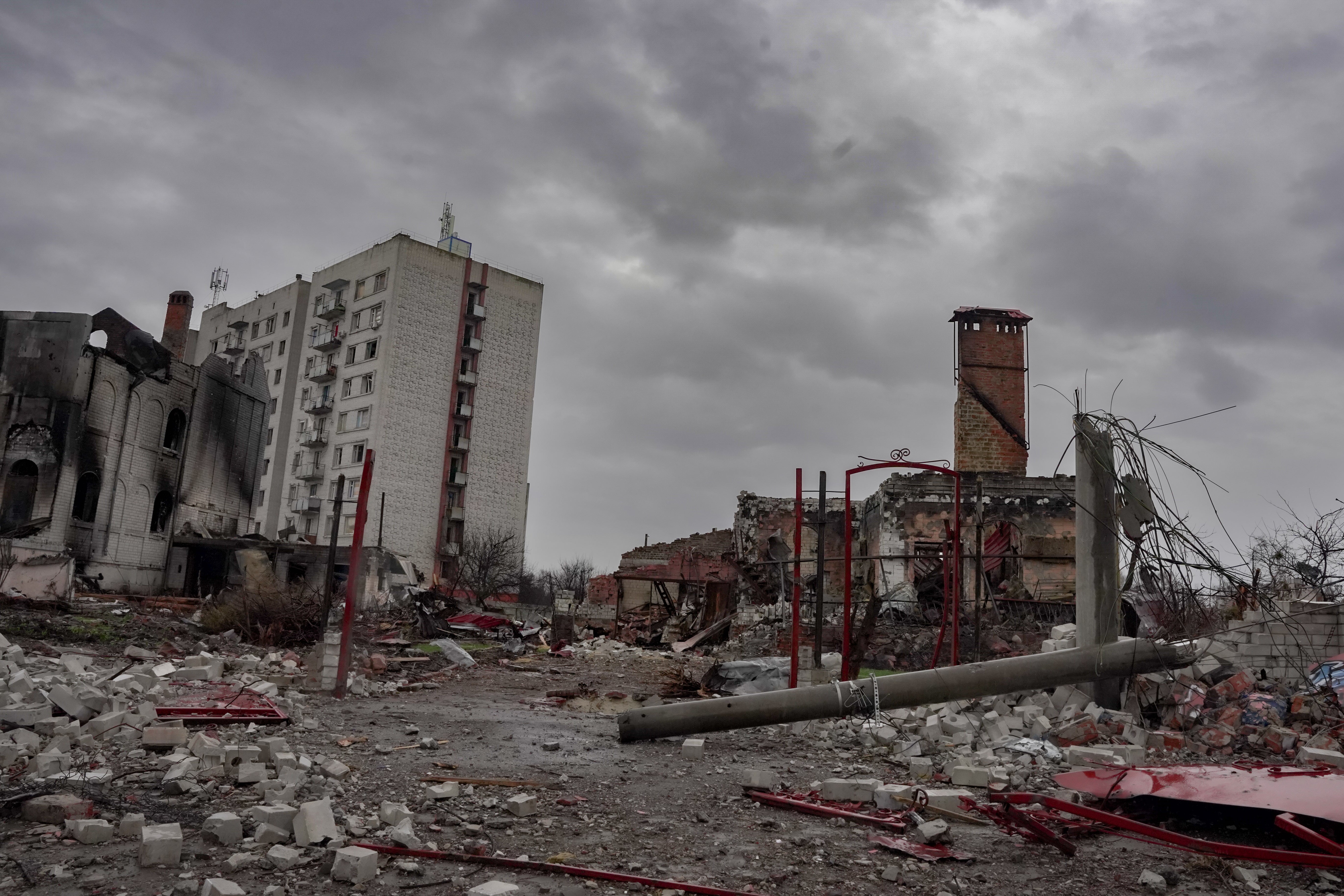
They have expanded their outreach and are now driving to different satellite towns that were until recently under occupation for weeks.
They have two floors worth of supplies and say they are feeding thousands of civilians and members of the military.
“I have witnessed everything from people missing their legs to people dying of hunger,” Igor says as he directs a busy stream of food deliveries.
“We lived every day as if it was the last and vowed to keep going.”







